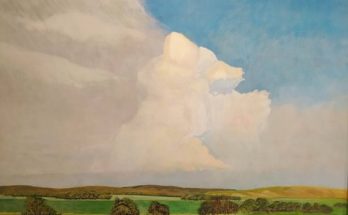By Josemaría Moreno
For the Writers Conference in San Miguel, we interviewed Benjamin Lorr, author of “Hell-Bent” (2012) and “The Secret Life of Groceries” (2020), two highly acclaimed works of non-fiction published in the United States. Thanks to the efforts of Armida Zepeda, the relentless organizer of the Conference in its version in Spanish, we were able to sit down with the author to discuss this form of exhaustive literature. For his first work, Lorr immersed himself in the world of Bikram Yoga and his research led him to discover some of the most inspiring and renovating aspects of this practice but also its darkest secrets. For his second book, the author spent five years researching commercial practices and the supply chain of different supermarkets, Trader Joe´s in particular.
JM: How would you like to introduce yourself to the public in San Miguel?
BL: I write immersive non-fiction, which is a form of writing where you go out and try to experience life not just by reading and talking about it, but by participating alongside your subject. For “The Secret Life of Groceries” I spent weeks driving around with truck drivers, months in Thailand following migrants, years talking with small business owners that were trying to get their products onto shelves, and what it takes to make a product like salsa, for example. For this kind of writing you have to give time for the story to unfold.
JM: Do you have any advice for young writers interested in this form of literature?
BL: In America people are hungry for good stories. We live in a time of post-truth and fake news. Nobody trusts big institutions anymore, but they do trust individual people because readers can see how a writer reacts to these stories in their own unique way. So my advice is to cultivate a way of speaking that is unique, give yourself permission to be yourself and react authentically. Find the issues that are important and go to them. There are a lot of questions that nobody is really addressing. But there are opportunities to tackle these issues if you are someone that can find the time to do it. That’s why, and this is my final advice, make sure your writing is supported by another job. For my first book I didn’t have to worry that I would be financially ruined if the book were a failure. It’s important that you are secure in that way so as to be able to find your own voice and be honest without having to worry about how your book will be received.
JM: What was the harshest discovery you made in “Hell-Bent?”
BL: At the time I wrote the book, before the Me Too movement, I thought that Bikram was an exception, but now I realize that the whole of yoga lends itself to abuse because you have to place a lot of faith and trust in your teacher; it can be a vulnerable position that people put themselves in.
JM: To get a better sense of who you are, what are you reading these days?BL: I’m giving myself the opportunity to read Gogol, I felt like it was good time I tacked that. Also, I just finished Rachel Aviv´s “Strangers to Ourselves,” a story about mental illness that I highly recommend. And now I’m also going to read Brenda Lozanos “Brujas.”




